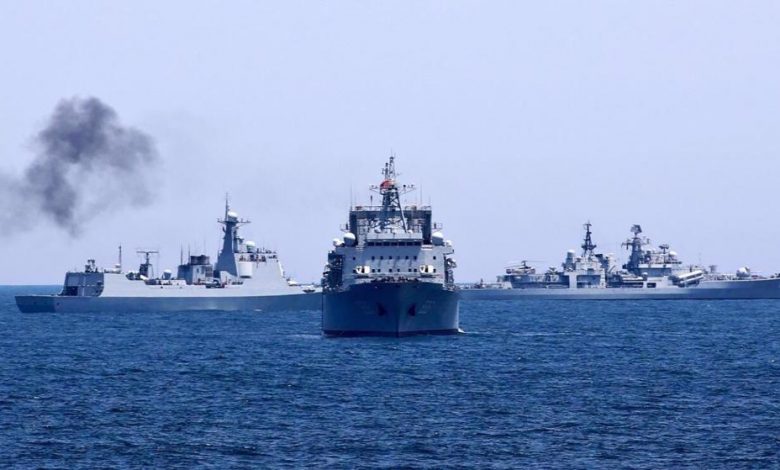“Iran, Russia will continue military cooperation regardless of US sanctions”
Iran and Russia will maintain military cooperation and the United States’ sanctions will have no impact on Tehran’s military capabilities or its scientific research, says the Iranian ambassador to Moscow.

“This behavior of the United States will continue in the future, and the reason is that the US no longer enjoys the dominance of the past,” Kazem Jalali said in an interview with Sputnik on Friday.
He rejected US claims about being the “world’s number-one power” and said, “That is not the case as there are several countries that have caught up and overtaken.”
The United States, under the administration of outgoing US President Donald Trump, reinstated the sanctions that it had lifted once it became a member of the 2015 multilateral nuclear agreement, officially known as the Joint Comprehensive Plan of Action (JCPOA), and also started to cow others into committing to the bans and stopping their trade with Tehran.
Following Washington’s unilateral withdrew from the agreement in May 2018, it unleashed the so-called maximum pressure campaign to curb Iran’s development of its nuclear program and targeted the Iranian nation with draconian restrictive measures in order to bring it to its knees, but Tehran’s economy keeps humming and is getting back on its feet.
The Russian Foreign Ministry spokeswoman said in mid-October that Moscow will consider military technical cooperation with Iran in line with mutual interests after the expiration of a United Nations arms embargo on Tehran.
“We are convinced that all possibilities stemming from the expiration of the provisions of United Nations Security Council Resolution 2231 that are linked with military technical cooperation with Iran will be duly taken into account and used on the basis of mutual benefit and in the interests of the peoples of our two states,” Maria Zakharova said.
The Iranian envoy further stressed the importance of reinforcing unity among Russia, China, Iran and other countries subjected to US sanctions, saying they should “show that the forceful use of instruments of power on the international scene is an illegal act that may lead to harmful consequences for countries and peoples.”
US must compensate Iran before it returns to JCPOA
Elsewhere in his interview, Jalali said the US must compensate Iran for losses due to its sanctions if it wants to returns to the nuclear deal with world powers.
He added that Iran sees no much difference between the American Democrats and the Republicans in their policy towards Tehran.
On December 8, EU foreign policy chief Josep Borrell said the United States needs to rejoin the JCPOA, commending the multilateral agreement for perfectly exemplifying a successful diplomatic strategy.
“We need to find a way for the US to rejoin the Iran nuclear deal, and for Iran to come back into full compliance. The nuclear deal is still assessed as a landmark of successful diplomacy … We are proud of it as the biggest success of our diplomatic capacity,” Borrell told a GLOBSEC webinar.
Israeli regime’s nature tied to terrorism
The Iranian ambassador further emphasized that the Israeli regime’s nature is tied to terrorism, saying, “The presence of the Zionist regime (Israel), particularly in our region, is not in the interest of any country.”
The Tel Aviv regime’s measures are based on creating instability and sowing division, Jalali added.
He pointed to the recent assassination of senior Iranian nuclear scientist Mohsen Fakhrizadeh and said there is a lot of evidence that the Israeli regime is behind his murder.
Fakhrizadeh, who headed the Iranian Defense Ministry’s Organization of Defensive Innovation and Research (known by its acronym SPND), was assassinated on November 27 near Damavand in Tehran province.
Spokesman for the Islamic Revolution Guards Corps (IRGC) Brigadier General Ramezan Sharif said on December 6 that satellite equipment has been used in Fakhrizadeh’s assassination.
“Advanced electronic instruments guided by satellite were used in the assassination of Martyr Fakhrizadeh,” Sharif said, adding that “the Zionists are well aware that their measures [against Iran] will not go unanswered and this issue has been proven to them in the past.”
Earlier on November 30, an informed source told Press TV that the remains of the weapon used in the assassination of top nuclear scientist show that it was made in Israel.
The source added that the weapon collected from the site of the terrorist act bears the logo and specifications of the Israeli military industry.
Iran, Russia eliminating dollar in trade exchanges
In another part of the interview, Jalali pointed to efforts by Tehran and Moscow to eliminate dollar from bilateral trade ties and said, “Currently, more than 40 percent of trade exchanged between Russia and Iran are performed in the national currencies of the two countries.”
He added that the two neighboring countries of Iran and Russia have managed to expand strategic relations in recent years and are trying to take advantage of each other’s high trade and economic capacities to serve mutual interest.
Iran-Russia cooperation to produce coronavirus vaccine
The Iranian ambassador also noted that the Islamic Republic seeks to boost cooperation with Russia in the production of the coronavirus vaccine while negotiations have been held over the issue in the recent months.







